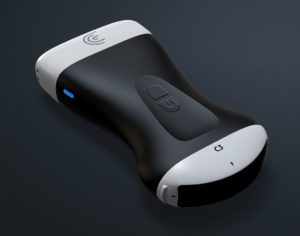Ryan Ziegler is an agent of change. For years, the EMS paramedic has been advocating the use of POCUS at his firehouse-based agency, a struggle he chronicles in an excellent EMSPOCUS blog post. We found Ryan’s story inspiring, and got in touch with him for an interview. Our discussion shed light on how pushing for progress can be an occasionally frustrating, and yet ultimately satisfying experience. Thanks to his perseverance, Ryan was recently able to acquire an ultrasound machine for his team.
Clarius: Reading your article, it seemed like many of your colleagues were quite against introducing POCUS, and yet you saw the potential in it. What do you think allowed you to see things differently than everyone else?
RZ: About three years ago, I found myself on a cardiac arrest that eventually ended up as a narrow complex PEA, after a little more work, and a call to our medical control, we managed to generate a pulse. With some education, and discussion, I came to understand that it was likely a pseudo-PEA. I knew then, we had to find a different way. Eventually, that was ultrasound.
Clarius: It sounds like pushing for change was quite an exhausting experience, and yet you still persevered. What made you feel so strongly that POCUS was something worth advocating for?
RZ: POCUS greatly improves care because it helps the receiving hospital prepare the right resources for the patient. As we see with sending ECGs to the ED for catheter lab activation for STEMIs, the ability to diagnose a pulmonary embolism, or pericardial effusion in a shocked patient could make a massive difference in patient outcomes. As an EMS provider, this is where we can have the biggest impact in a patient outcome, since treatment always begins with us.

Clarius: Since introducing POCUS to your agency, have you gotten very proficient with it yourself? How much has FOAMed (Free Open Access Medical Education) helped?
RZ: POCUS is still incredibly new to our agency. We’ve only just received our machine. I fully intend to become as proficient as possible because my patients will benefit in the long run. FOAMed has always been a source of inspiration, and, to be candid, one that saved my career as an EMS professional. It has been instrumental in my desire to implement POCUS, and learn as much as possible. Ultrasound is truly the new stethoscope.
Clarius: What was the most inspiring or positive experience you had in pushing for change?
RZ: The most inspiring portion of this process has been the support I, and others, have received from the Chief of our department, and from the vendor who sold us our equipment. Our Chief may not always fully understand the need for some things, but so long as it keeps us moving forward, he gives us the full support we need. Every fire department in the US often has to fight for budgetary items, especially ones some may see as unnecessary. Knowing we have someone in our corner who can fight for us, and get us what we need to make an improvement in morbidity and mortality, really inspires us to do our best.
Clarius: What was the most disappointing experience?
RZ: The most disappointing thing has to be the naysayers. While I’m not naive enough to pretend they don’t exist, I had initially hoped for better buy-in. The toughest part of this experience is that many of those I thought would view the project as a benefit, instead thought it was a waste of time.
Clarius: Any regrets, or would you do it again?
RZ: I’d do this again, without question. Having POCUS in the field is probably the most important advancement in pre-hospital care since 12-lead ECGs. As research goes forward, I think we will begin to see the benefit.
Clarius: What advice do you have for would-be change makers?
RZ: Do it. It doesn’t matter what it is. Do your research, figure out the benefits and negatives, decide how it fits into your clinical practice and operating area, and then make the compelling argument for change. Too often we find that U.S.-based EMS is fine with the status quo. Change is uncomfortable, but it’s not about us. It’s about the patient.
Clarius: Anything else you’d like to add?
RZ: Thanks for offering the interview! If anyone who reads this would like more information on how we went about POCUS implementation, or how we are using it, give me a follow on Twitter (@momedic9019).
Read Ryan’s original article on EMSPOCUS: http://www.emspocus.com/single-post/2016/04/08/Guest-Post-Tradition-Unimpeded-by-Progress-by-Ryan-Ziegler














